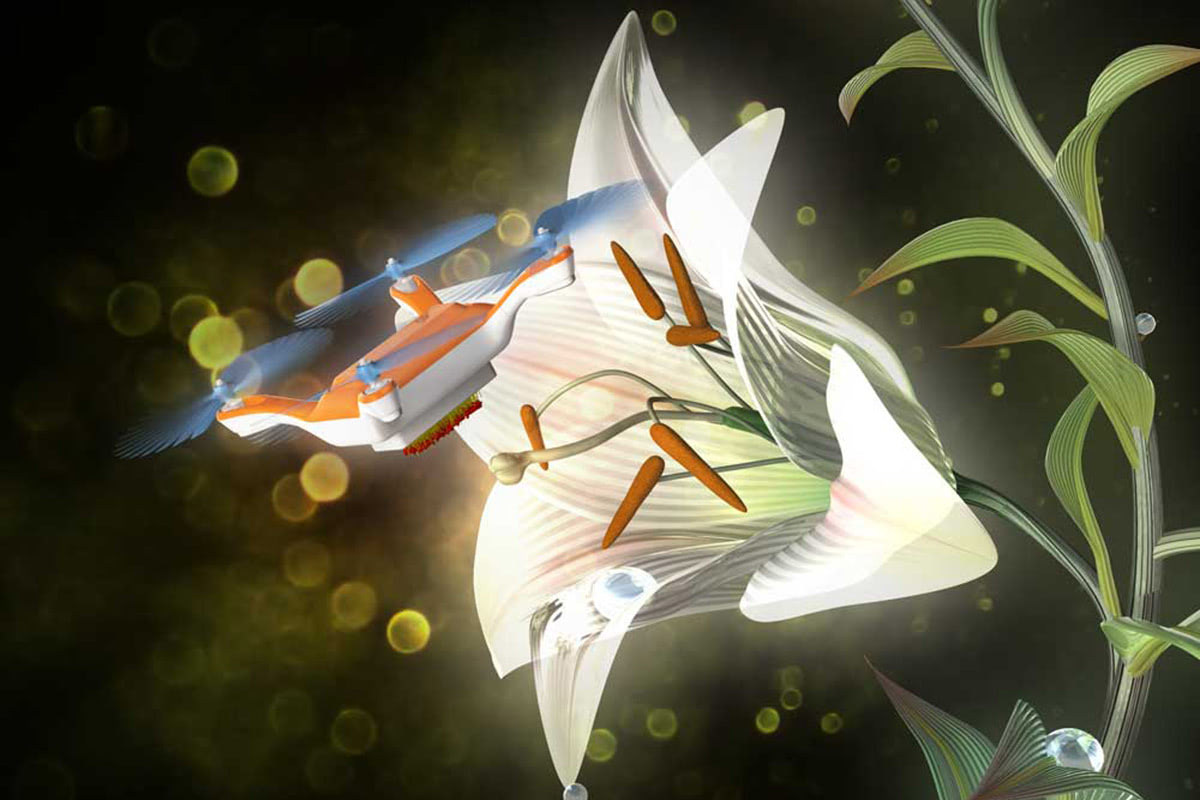A video of a robotic bee pollinating a flower (looking more like Loopin' Louie spinning off the board game and hitting a flower) recently caught our attention. What at first sight might look like a silly viral video, could be an important step in the survival of bees. To save us humans from a future without honey and pollinating crops by hand, we need to save the bees. These insect-sized drones could actually play a major role in their survival.
Cyborg insects are nothing new, neither is the robo-bee. Researchers from Wyss Institute at Harvard have been working for years on the development of the next pollinators. But these paperclip-sized, wired robo-bees still need years of further development before they can transfer pollen from flower to flower. Time costs money.
Chemist Eijiro Miyako, who is working at the National Institute of Advanced Industrial Science and Technology (AIST), has found a way to pollinate the Earth with robo-bees in a less expensive way. The researchers used a cheap, small (4 cm), manually controllable toy drone, attached horsehair to the bottom and covered it with a non-degradable sticky gel. The sticky gel was discovered by chance, as it was found in an uncapped bottle years after an experiment went wrong. By transferring pollen grains stuck to the sticky gel from one flower to another, the remote-controlled drone was able to pollinate a Japanese lily with success.
As explained by Phys.org:"Although the work is still far from being used in the field, it is a creative first step to addressing a future with fewer bees. The goal would be to decrease the stress put on bee populations by commercialization so that they can do what robots can't - make honey - while the drones take over the demands of crop pollination".
This robo-bee pilot needs some flight lessons, but Miyako’s team hopes this project will contribute to counter the problem of bee declines. While team Miyako in Japan is now working on the development of autonomous drones that require GPS, high-res cameras and AI to navigate robo-bees from flower to flower, it might be a good idea for Wyss and Miyako to cross-pollinate their projects and start working together. Because after seeing the Black Mirror episode ‘Hated in the Nation’, it would preferable to have lower-tech, bigger than paperclip-size robo-bees that are not buzzing around in the uncanny valley.
Sources: Phys.org, New Scientist. Image: New Scientist

Share your thoughts and join the technology debate!
Be the first to comment